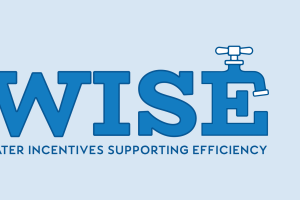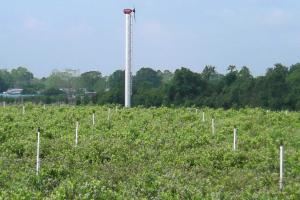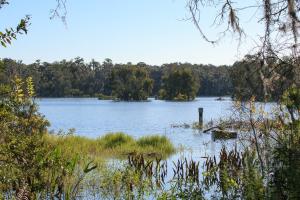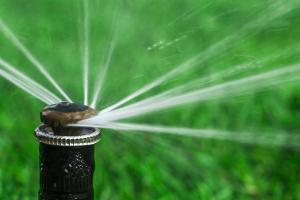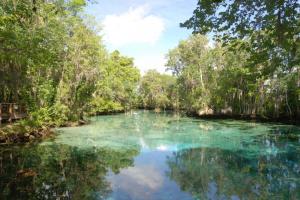Watch the Governing Board Livestream Tuesday at 9 a.m.
Search Content
Displaying results 101 - 120 of 4965
Benefits to builders and owners
- Saves an estimated $530 on utility bills annually, adding up to water savings of up to 48,291 gallons in one year per home
- Increases home values by approximately $10,000; per The Appraisal Journal, home values typically increase by $20 for every $1 reduction in annual utility bills
- Provides free marking support through customizable company brochures, plaques for homeowner display and free real estate staff training …
Frequently Asked QuestionsWhat is Florida Water Starsm?Florida Water Star is a voluntary certification program designed to increase water efficiency inside the home and in landscapes and irrigation systems. While many certification programs provide general guidelines for water efficiency, Florida Water Star specifically addresses uses relevant to Florida. Following Florida Water Star criteria in new and existing buildings will help sustain the area’s…
As Water Resources bureau chief, Jay Hoecker is responsible for management and oversight of regional water supply planning; water supply and resource development projects; economics and demography; water conservation projects; and septic to sewer conversion projects. Hoecker also oversees the FARMS program, which offers cost-share assistance to the agricultural community for conservation, water quality, natural system and alternative water supply best management practices (…
Program Update: Thank you for your interest in the WISE Program. The program is not currently accepting or processing applications for projects unless they are submitted and led by a utility. The program’s objectives and protocols are under review, and if or when the program may resume for non-utility projects is not known at this time. This webpage will be updated when a decision is made. (Update posted Oct. 21, 2025)About WISE ProgramGrants (cost-…
Applied innovative agriculture as a passive alternative to permitting. An Evolving ProgramRecognizing that urban standards for surface water management permitting were inappropriate for farming, the District developed special provisions for an agricultural exemption letter to satisfy the surface water regulations of an environmental resource permit (ERP). The District further categorized specific agricultural activities that could qualify for an exemption letter as “…
The District established the Dover/Plant City Water Use Caution Area (DPCWUCA) and a Recovery Strategy to address issues that followed an “unprecedented” cold event in 2010. An area assessment done in 2020 indicated that the Recovery Strategy was no longer needed, and in 2021, the District’s Governing Board approved rulemaking to eliminate the Recovery Strategy.BackgroundIn January 2010 there was a cold-weather event in the Dover/…
This reclaimed water project reduces groundwater pumping and wastewater nutrient loading in the Crystal River/Kings Bay springshed.
Project Overview
The project provides highly treated wastewater, known as reclaimed water, from the City of Crystal River to the Duke Energy power plant in Citrus County. Infrastructure was built to transport all reclaimed water from the City of Crystal River’s wastewater sprayfield to the Duke Energy power generation complex, located west…
The Northern Tampa Bay Water Use Caution Area (NTB WUCA) includes all of Pinellas and Pasco counties, and the majority of Hillsborough County. Project DescriptionThe Northern Tampa Bay Water Use Caution Area (NTB WUCA) was initially established in 1989 and expanded in 2007 to protect water resources from adverse impacts from groundwater withdrawals and from rapid growth and development pressures in the region. The majority of groundwater use in the NTB WUCA is for…
During cooler months in fall and winter, your lawn doesn’t need watering every week. It’s the best time to train your yard to need less water! So only water your lawn every other week and only if it needs it. Too much irrigation…
- Makes your lawn less able to survive droughts
- Encourages pests and disease
- Wastes water
- Grass doesn’t need as much water in the cooler months
- Apply 1/2" to 3/4" of water …
Learn about the District's founding and highlights of our 60+ years in this interactive timeline of the District's history.
- Requires a modern browser with javascript enabled
Who is the Southwest Florida Water Management District?The Southwest Florida Water Management District (District) manages the water resources for west-central Florida as directed by state law.The District encompasses roughly 10,000 square miles in all or part of 16 counties and serves a population of nearly 6 million people. The goal of the District is to meet the water needs of current and future water users while protecting and preserving the water resources within…

